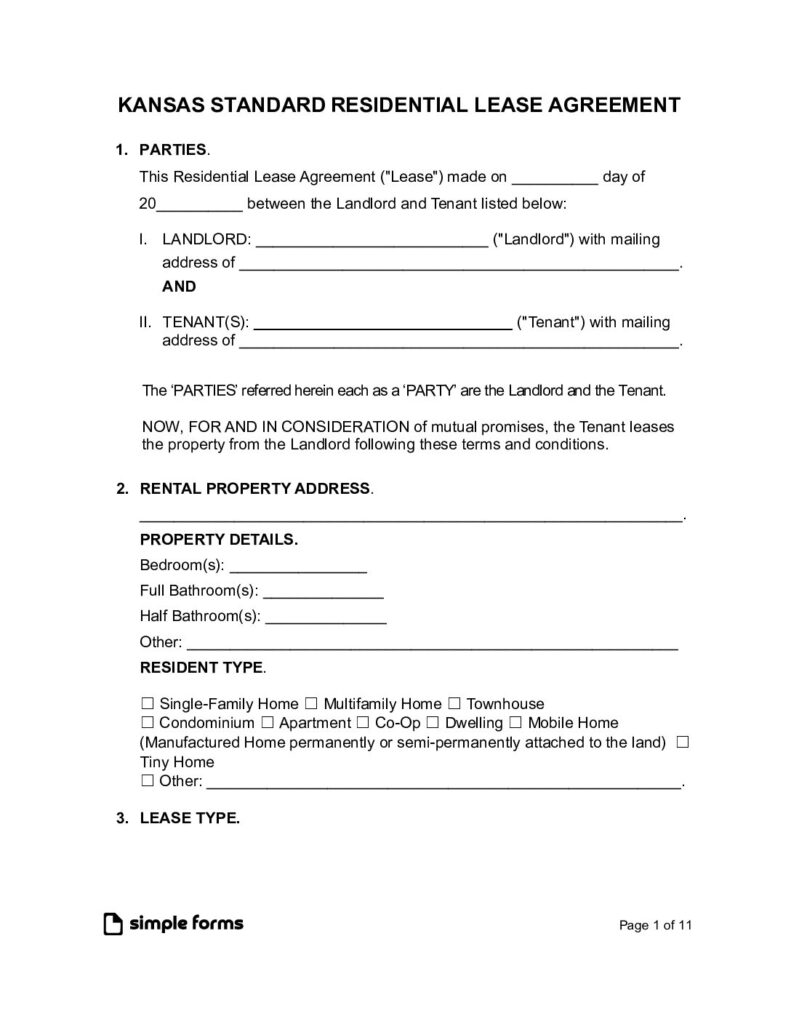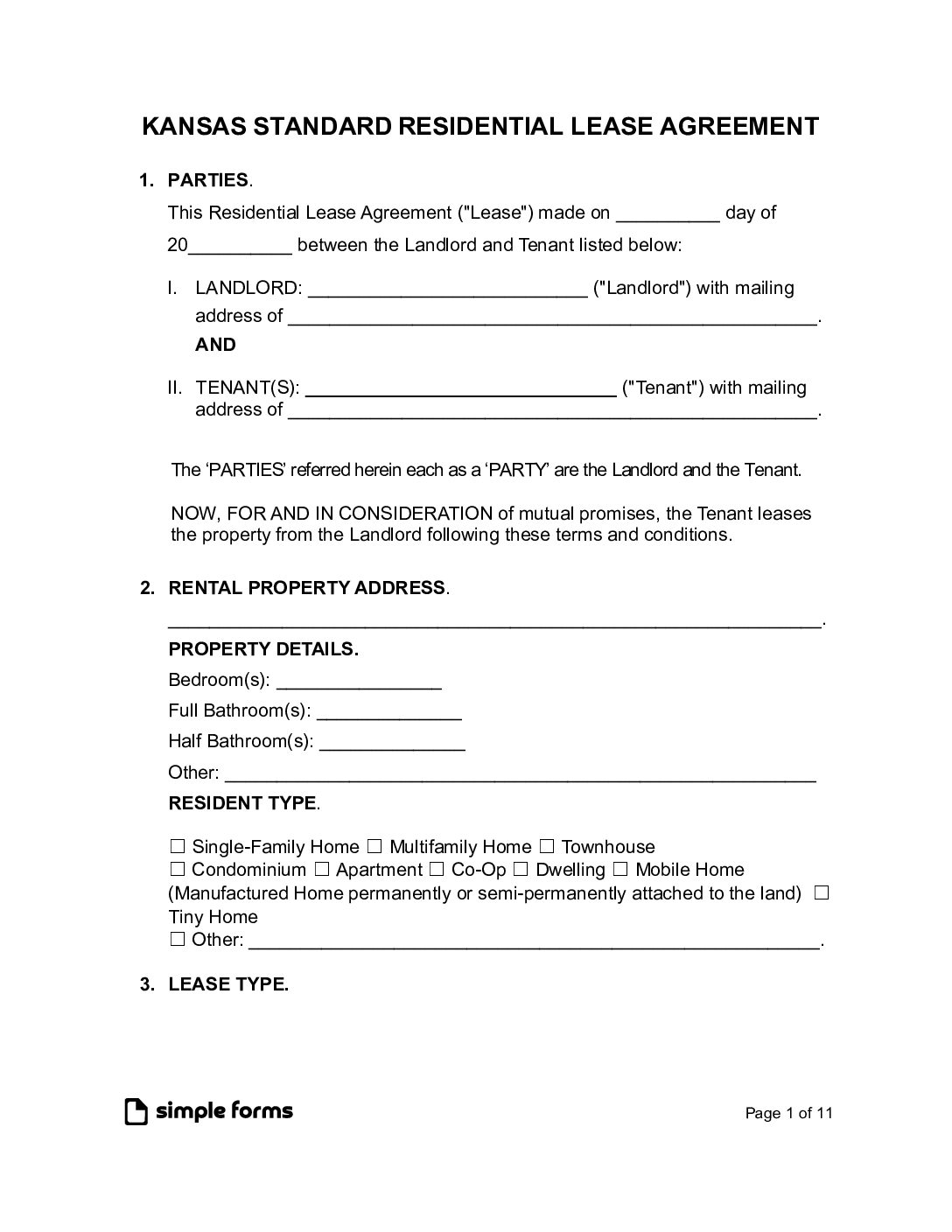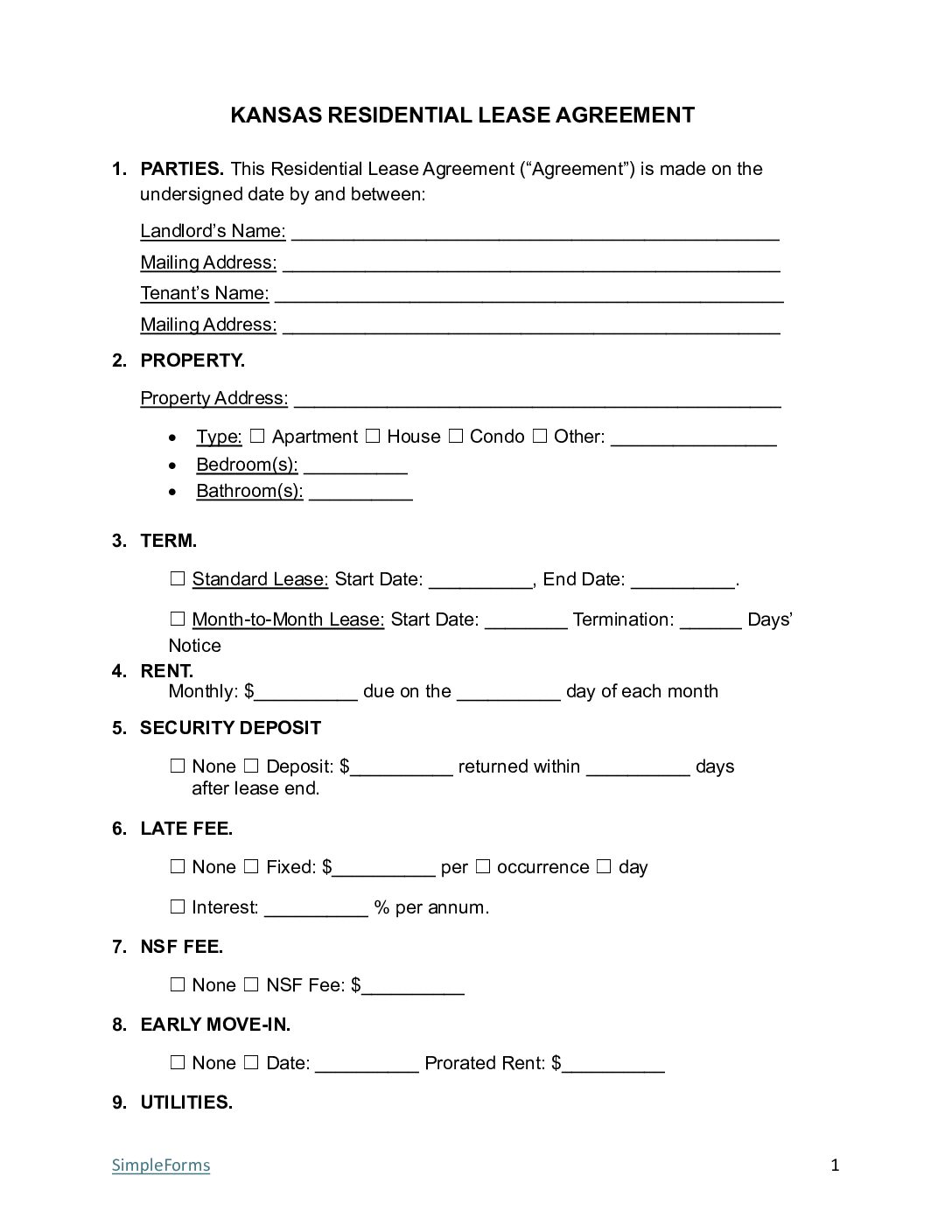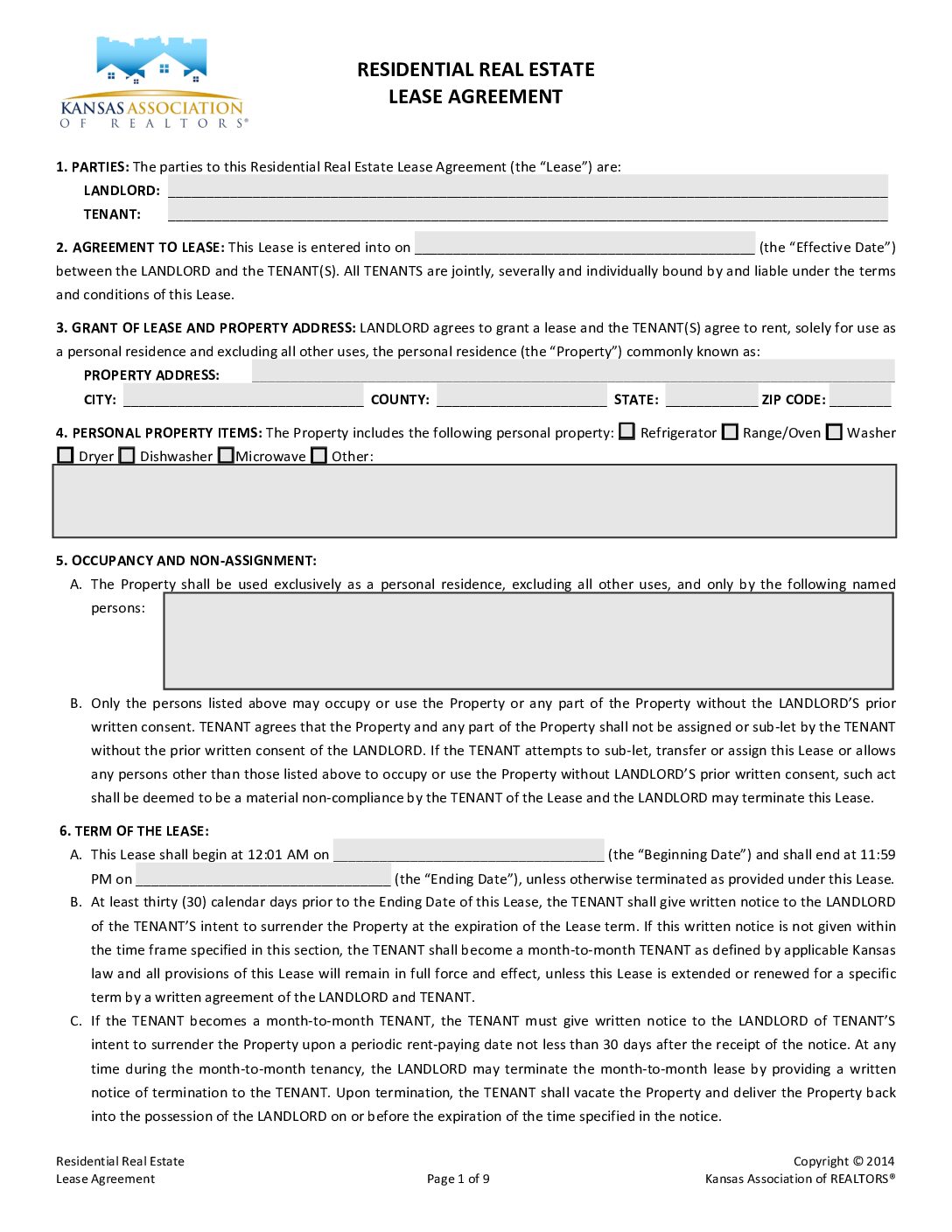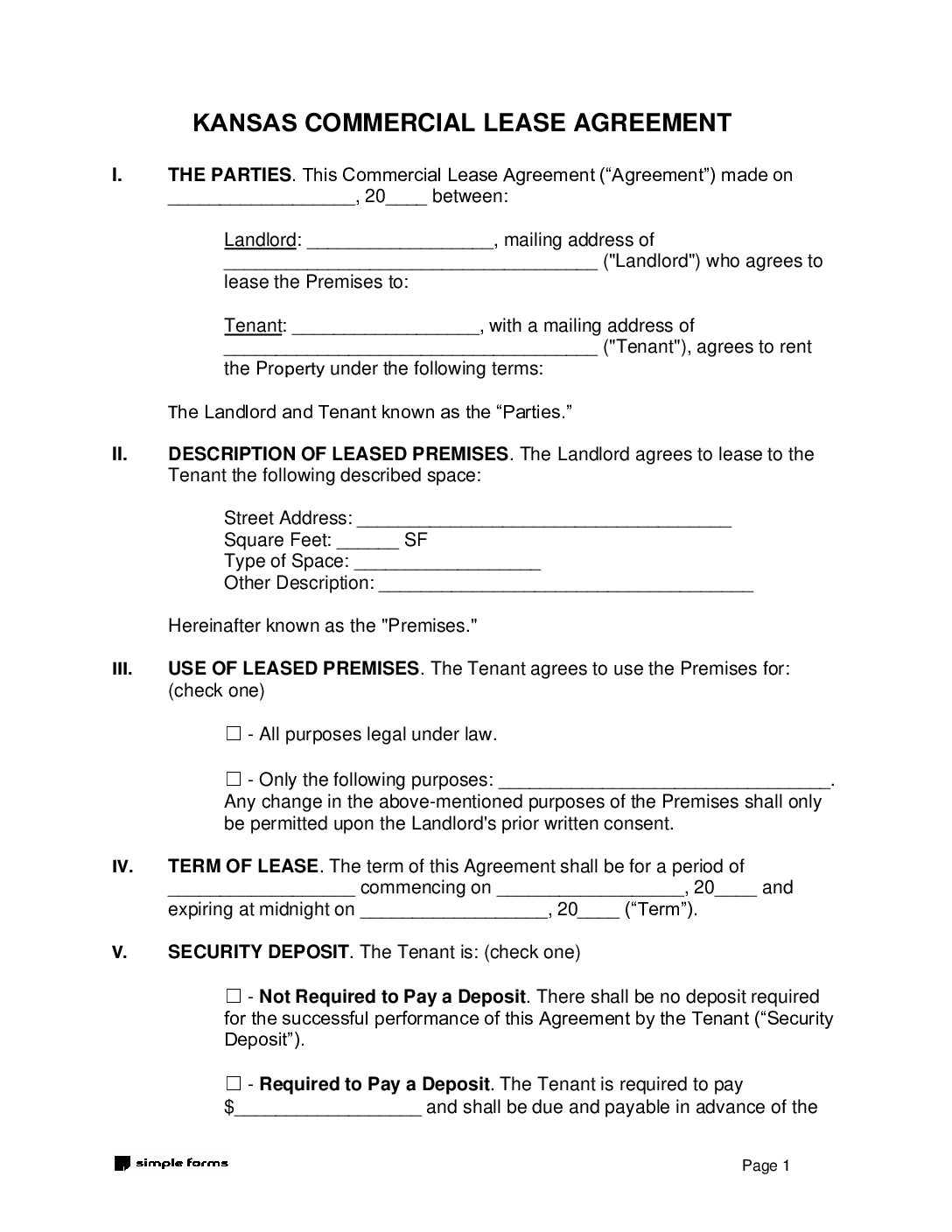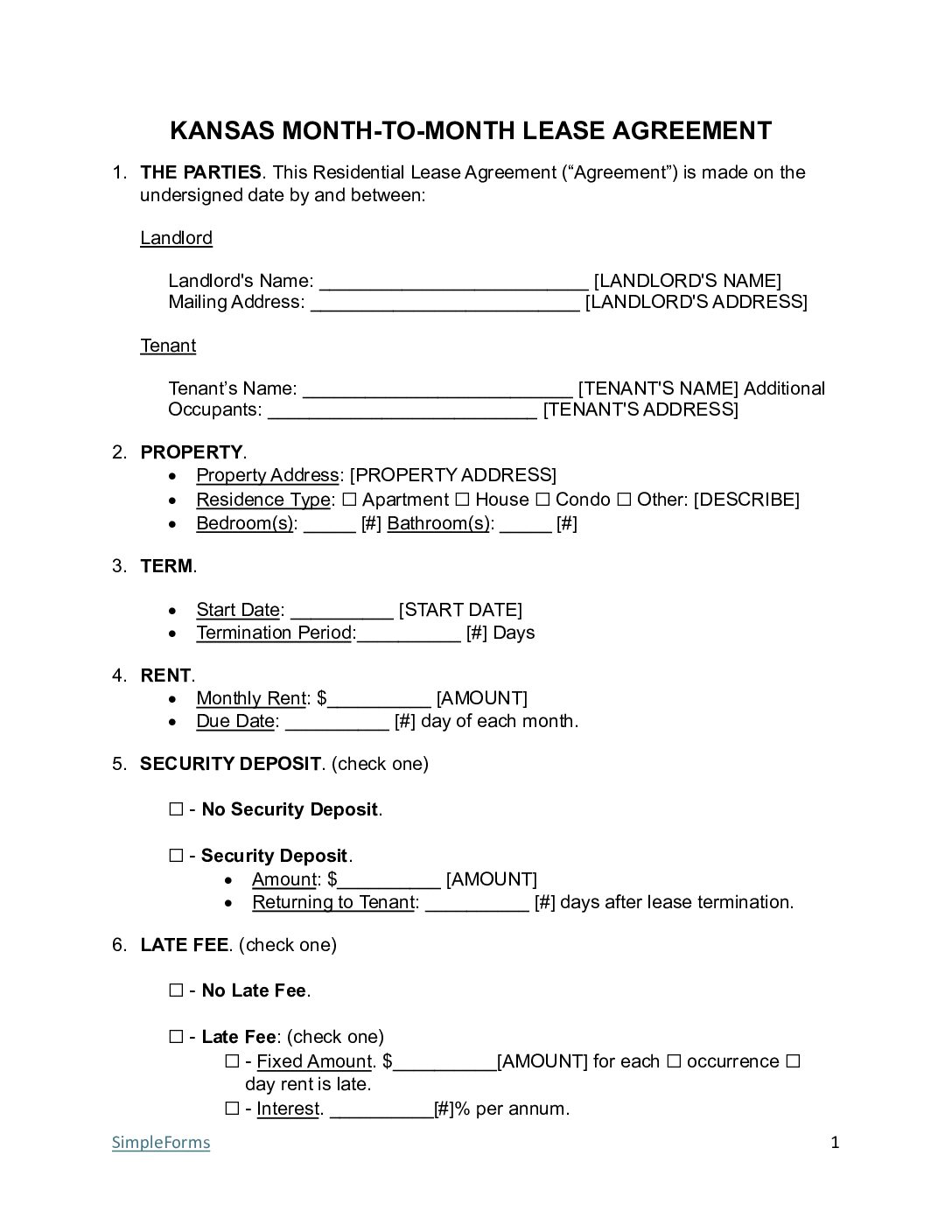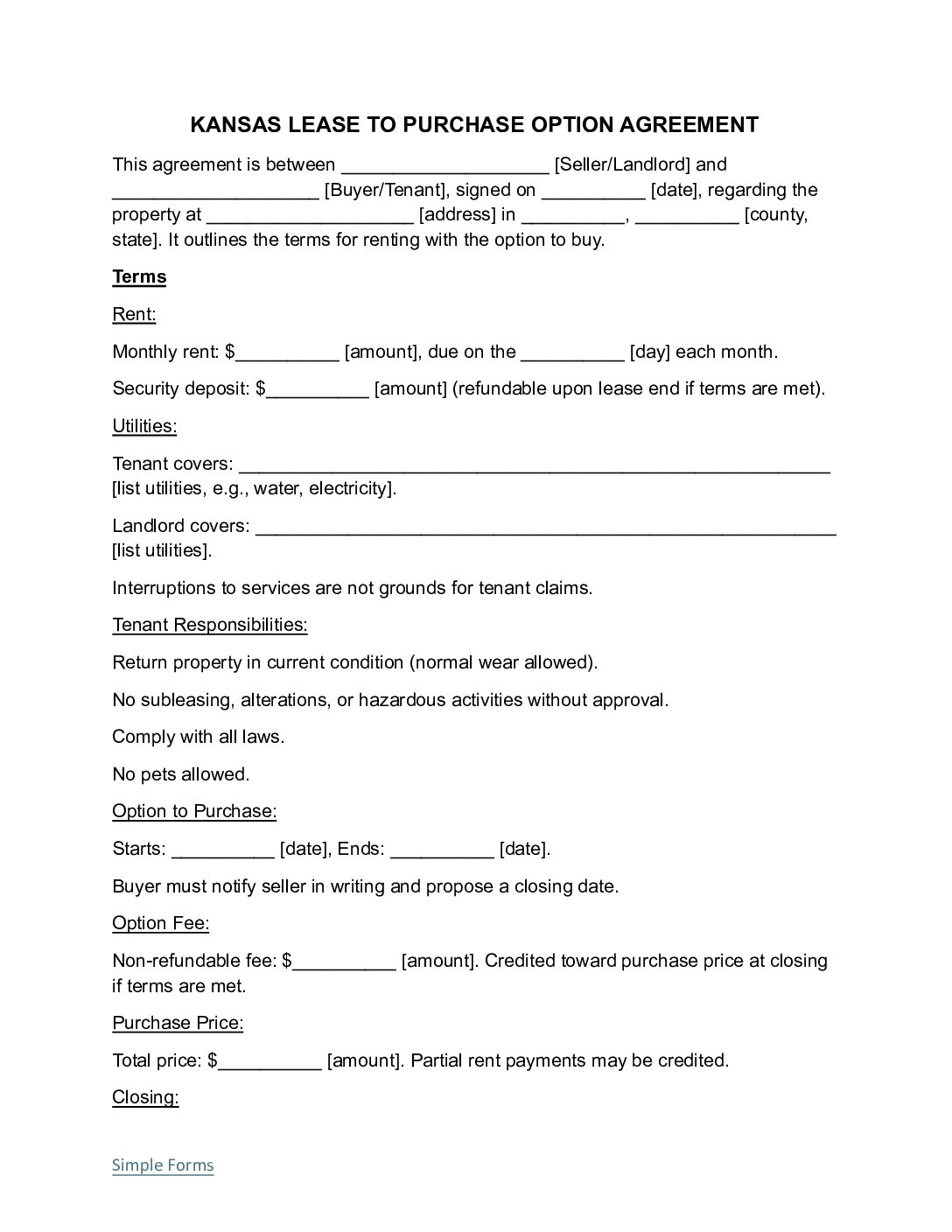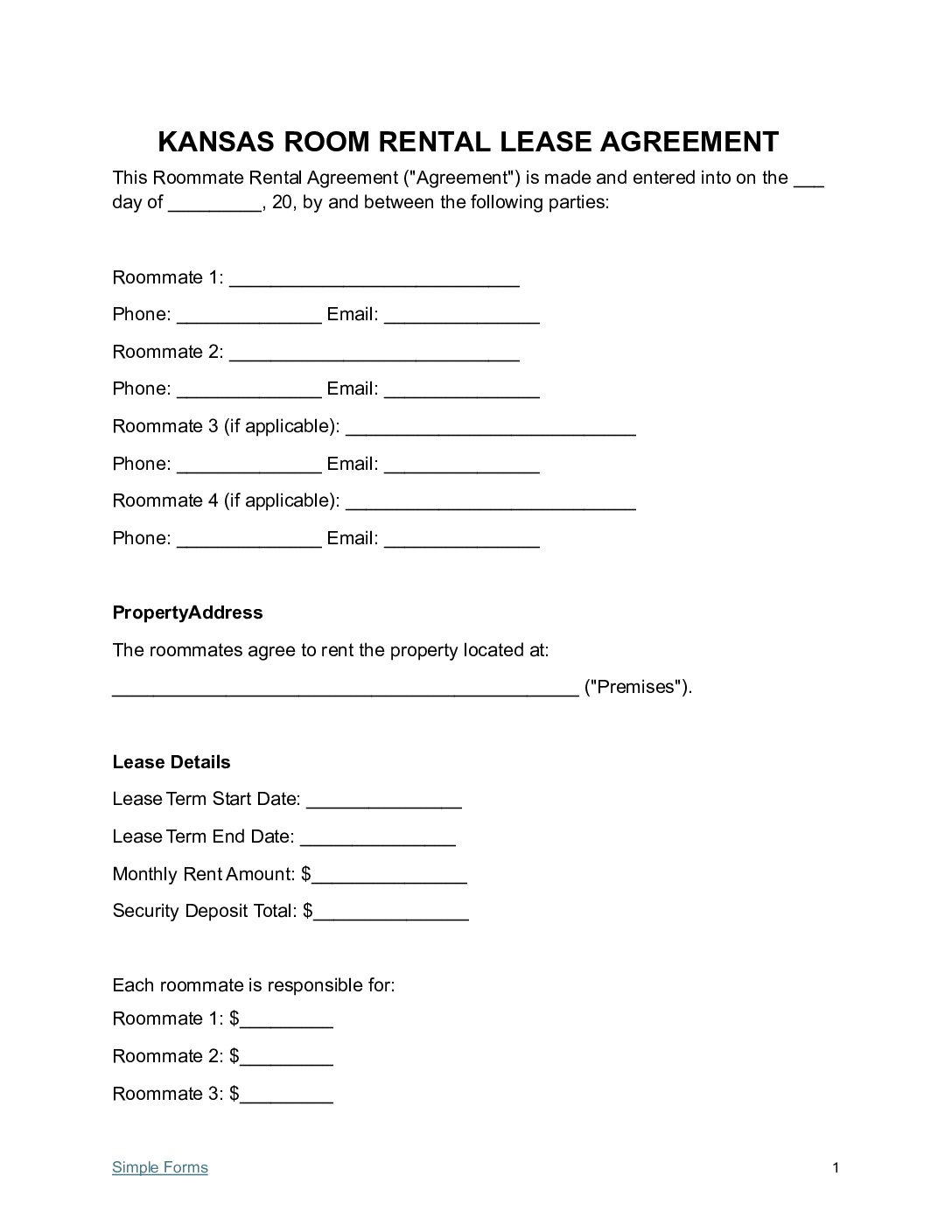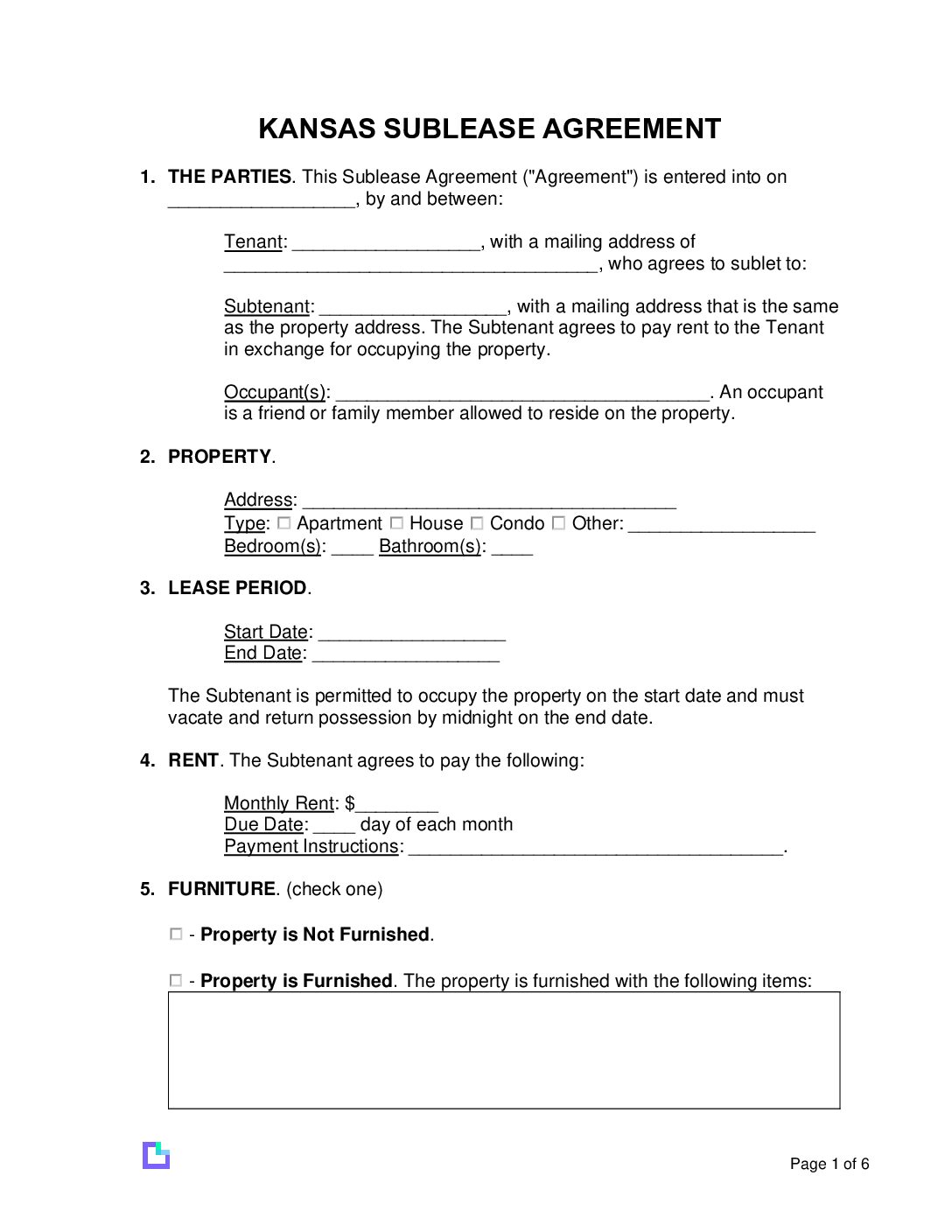By Type (7)
| Residential Lease Agreement Template – Standard lease agreement used for residential rental property in exchange for monthly rent payments. Download: PDF | Word (.docx) |
|
| Association of Realtors Lease Agreement Template – Kansas Assoc. of Realtors Residential Lease Version. Download: PDF | Word (.docx) |
|
| Kansas Commercial Lease Agreement Template – Mainly for business purposes, such as office, retail, and industrial spaces. Download: PDF | Word (.docx) |
|
| Month-to-Month Lease Agreement Template – A flexible rental agreement where either the landlord or tenant can end the contract with a 30 days’ notice before the next payment period. (§ 58-2570) Download: PDF | Word (.docx) |
|
| Rent to Own Lease Agreement – A residential rental agreement that includes the option to purchase the property under specific terms. Download: PDF | Word (.docx) |
|
| Room Rental Lease Agreement – A contract between household members to manage cleaning, bill payments, and other rules or agreements among roommates. Download: PDF | Word (.docx) |
|
| Sublease Agreement – An agreement in which a tenant allows another person, the subtenant, to take over their rental space. Download: PDF | Word (.docx) |
What the Kansas Residential Lease Agreement covers?
The form follows Kansas’s Landlord and Tenant Law (K.S.A. 58-2501), requiring landlords to keep the property safe and tenants to pay rent on time. Security deposits must be returned within 30 days, minus damages. Evictions require proper notice, and tenants have the right to a safe home and notice of rent increases.
- Kansas Uniform Residential Landlord and Tenant Law
- Security Deposit Law
- Lease Termination
- Landlord’s Access to Property
- Rent Payment Due Dates and Late Fees
- Eviction Procedures
- Property Maintenance
- Tenant Rights
- Rent Control Laws
- Required Disclosure Forms
Kansas Uniform Residential Landlord and Tenant Law
Summary (K.S.A. 58-2501): Kansas Uniform Residential Landlord and Tenant law regulates landlord and tenant relationships.
Security Deposit Law
Summary (K.S.A. 58-2550): Kansas law regulates how landlords handle security deposits:
- 30 Days – Landlords must return security deposits within 30 days after the tenant moves out.
- Itemized Deductions – Any deductions from the deposit must be itemized and provided to the tenant.
- Pet Deposit – Additional one and a half (1 1/2) months’ rent unless the pet is used for a medical reason (Americans with Disabilities Act (ADA)).
- Max Amount – One (1) month’s rent for unfurnished properties and one and a half (1 1/2) months’ rent for furnished rental properties.
Lease Termination
Summary (K.S.A. 58-2573): Kansas law outlines the conditions under which leases can be terminated:
- Landlord’s Right to Terminate
- 3-day notice for non-payment of rent.
- Reasonable time to fix other lease violations.
- Tenant’s Right to Terminate
- 30-day notice for month-to-month leases.
- Early termination in cases of domestic violence with proper documentation.
Landlord’s Access to Property
Rent Payment Due Dates and Late Fees
Summary (K.S.A. 58-2565): Kansas law does not specify a standard rent due date. Landlords can charge late fees if included in the lease agreement.
- Maximum Late Fee – No maximum amount.
- NSF Fees – $30 per bounced rent check.
- Grace Period – 5-day notice to quit.
Eviction Procedures
Property Maintenance
Tenant’s Rights
Summary: Tenants in Kansas have rights, including:
- Right to Privacy – Landlords must respect tenant privacy and provide adequate notice before entering the rental unit.
- Right to a Safe Home – Tenants are entitled to live in a safe and habitable residence.
- Protection from Retaliation – Landlords cannot retaliate against tenants who report safety violations or code issues.
Rent Control Laws
Required Disclosure Forms
Summary : Kansas landlords must provide the following disclosures to tenants:
- Lead-Based Paint Disclosure (hud.gov) – Required for properties built before 1978.
- Landlord/Manager Contact Information (K.S.A. 58-2554) – Mailing address and contact details for property management in order to send and receive notices.
- Inventory and Condition of the Premises (K.S.A. 58-2548) – Complete within 5 days of tenant move-in date.
- Radon Gas Disclosure Form – If there was prior presence of radon gas must be disclosed along with the health risks radon causes.
Sellers Disclosure and Condition of the Property
Kansas Sellers Disclosure and Condition of the Property Addendum [PDF]
